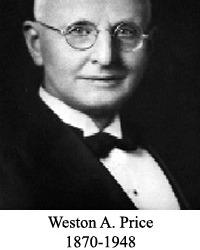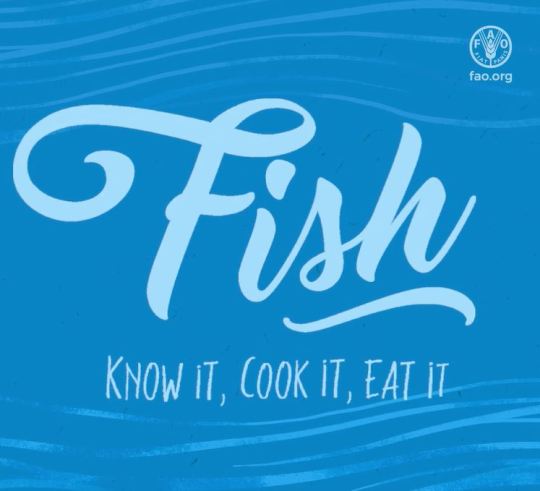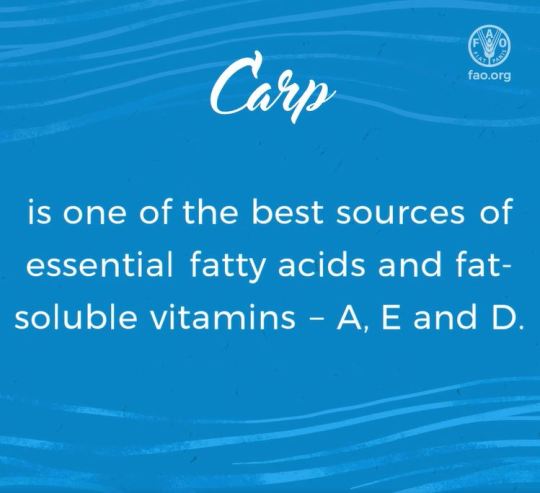#fat-soluble vitamins
Text
Weston A Price Foundation

This guy was a dentist in the early twentieth century who became famous for warning about the dangers of diet changes happening at the time. Young people were less sturdy than they had been, and crooked teeth in kids was becoming more common. He traveled around the world to record the phenomenon, which was being caused by the introduction of cheap processed foods, especially sugar, white flour and vegetable oils. Promotion of these was displacing traditional diets and he documented the results as they happened.

The Weston A Price Foundation www.westonaprice.org
Traditional peoples highly valued ANIMAL FATS, MEAT, EGGS, POULTRY, SEAFOOD, BROTHS and ORGAN MEATS as necessary for raising strong children. They could see the results as colonialism and marginalization forced them to adopt inferior diets. Dr. Price proved that Vitamins A, D and K2 (the Price Factor) from animal foods are necessary for healthy growth, lifelong health and strong immune systems. He found NO traditional culture which practiced a Vegan diet.
Important books on Nutrition and Traditional diets: Nutrition and Physical Degeneration by Weston A. Price; Nourishing Traditions by Sally Fallon and Mary G Enig Phd, You Eat What You Are by Thelma Barer-Stein Phd, Good Calories, Bad Calories, by Gary Taubes, and The Big Fat Surprise by Nina Teicholz.
#traditional foods#bone broth#weston a price#native diets#processed foods#animal foods#animal fats#fat-soluble vitamins#childhood health#healthy children#dentistry#wapf
0 notes
Text
Fish, know it, cook it, eat it.

Eating fish is one of the great pleasures of life. This book stems from that notion: it contains dozens of recipes from all principal regions of the planet.

"Fish may not suffice to ensure global food security, but there will no global food security without fish: even as more than 800 million of us suffer from hunger, seafood products make up a fifth of the animal protein intake for nearly half of the world's population.

0 notes
Text
Me, getting slapped extra hard with the depression hammer for the past 2 months couple weeks: Why does everything suck so much lately? Why don't I have any energy or motivation? I know the seasonal depression is waiting in the wings, but the weather's honestly been pretty mild lately.
My vitamin D supplements, gathering dust because I forget they exist if I don't see them: ...gee, wonder why that is, dumbass.
#(not) fun fact: if you stay inside all day AND don't digest fat properly#your vitamin d levels will be in the absolute shitter bc that bitch is fat soluble!#I thought I was being tidy by having a designated cupboard for my vitamins and cold meds and such#instead I just shot myself in both feet bc I have the object permanence of a toddler#and it apparently it only takes a single day for me to forget a whole ass routine#brb gotta slap a bright pink post-it note on a cupboard so I can ward off Bad Brain mode with gummies
3 notes
·
View notes
Text
if i was a fish i would let u deceive me (use bait 2 catch me) and then cook me for your nutritional fulfillment because love is love
#it would mean i get to live in ur body forever. omega 3 fats and other fat soluble vitamins etc etc#i am supporting u on ur journeys every single day and i get to accompany u! love!
2 notes
·
View notes
Text
People who do zero sugar/fat diets when they have issues with energy due to having no calories/vitamins.
#people do know fat is what vitamins come with right?#they’re call fat soluble vitamins for a reason#plus sugar cuts outs your fruits so you get no water soluble vitamins either!
0 notes
Text
they need to make a multivitamin that doesn't make your head hurt soooooo bad
0 notes
Text
Vitamin E Benefits
Vitamin E is a powerful antioxidant that helps to protect cells from the damage caused by free radicals. It also helps to improve circulation and has anti-inflammatory properties. Vitamin E can be found in many different foods, including leafy green vegetables, nuts, seeds, and oils. However, it can also be taken as a supplement, either as a vitamin pill or an oil. If you are thinking of taking a vitamin E supplement, it is important to speak with your doctor first to make sure that it is the right choice for you. Some people may need more vitamin E than others, and supplements can sometimes interact with other medications that you are taking.
0 notes
Text
i just took one more anti-stress multivitamin than i was supposed to so. now i have additional stress
#these things are all placebo anyway#and there’s no fat-soluble vitamins or iron in it so like. it’s fine#but i am NERVOUS
1 note
·
View note
Link
Wondering whether or not avocados actually help you to loose weight faster and more effectively? Here are some benefits that will help you get to the answer.
#loose weight#weight loss tablets#fat burner#water soluble vitamin#Nutrition supplements#detox diet#burn belly fat#eating avocado#use of avocado#avocado for weight loss#best way to loose weight#fat loss tips#avocado nutrition
0 notes
Text
Yang (fat-soluble) vitamins [DA HECK]: D, A, H (biotin), E, Choline, K
0 notes
Note
I really enjoyed your latest fic, sever the blight! But what really fascinates me are those nutrient cubes. What do you hc them being made out of? I remember in the fic someone mentioning them tasting fishy? And thinking about the r&d work that went into developing them is making my brain turn! Just Bruce developing a way to process, cook, and package the cubes, AS WELL AS running shelf life studies on them (I know he would, he's the type to run a 2+ year shelf life study, he would be that thorough). And the thought and care that went into making those cubes might be another way of Bruce showing that he cares for his children (in his weird way). If they get stuck/trapped somewhere for a long period of time, he's going to make sure he has a reliable, (somewhat) healthy, and safe food source for his kids until help comes.
Again, excellent fic!
Ahh thank you for asking about those! I think I wrote them that way half because I've been reading too much Star Wars fic and half because I'm a weightlifter about to go into another cut, so I've been thinking a lot about optimal nutrition.
My (admittedly non-expert) hc for the cubes was that they were made of complete proteins, omega 3's (hence the slightly fishy smell Clark notes) and some essential vitamins, while being as calorically dense and compact as possible. You need protein, calories, and fat for the fat-soluble vitamins, and you need it to be small, essentially.
Bruce's cubes kind of tell us several things about him:
He keeps more than a month's worth of calories in his belt at any time
He keeps those calories in a form that his children or other humans can consume
He knows the exact nutritional value of each cube and has a plan already reviewed to ration them, if needed
He knows how long he himself can go without the cubes before experiencing a go/no go point
He has, like you pointed out, tested these cubes to the point of perfection. They are optimized for both maximum output and minimal use of space.
The fact that the boys are used to the cubes, as Clark notes, means Bruce has fed them the cubes before. Either on missions, as snacks, or something else. Testing, perhaps?
He has, either intentionally or somewhat intentionally, designed the cubes to fulfill multiple nutritional needs. i.e., those of teens, growing children, adults, and adults with metahuman or enhanced abilities.
Bruce has likely experienced a time, or several times, when food has been scarce or when carrying optimal nutrition while fighting has been difficult.
You're exactly right -- there's always going to be a safe, bioavailable source of optimal nutrition for him and/or his kids within his belt at any given time. If he's alive, or they have his belt, they're safe for at least a few weeks.
It's a small cube, and his kids barely blink at it. But there's a whole world of care, service, and love wrapped up in that tiny little fishy protein cube.
#bruce my beloved acts of service example#myfic#theresurrectionist#sever the blight#asks#thank you friend!#tw discussion of weight loss/gain#tw discussion of calories#tw starvation#nutrition#me talking out of my non-science ass as usual#batfamily#batman#bruce wayne#dc
94 notes
·
View notes
Text
Let's explore the negative association of milk in Tamriel's Nordic culture.
So, basically, from the dialogue and other sources, we know that drinking milk within Nord cultures is associated with a number of negative perceptions, such as:
Milk is for children.
Milk is associated with weakness.
Milk is not a manly beverage.
This is evidenced by the lines from numerous NPCs in Skyrim.
If you have a disposition of -1 or lower with an NPC, they may say to you: "What do you want, milk drinker?"

There is also the Taunting Adventurer NPC in Skyrim, who is a randomly encountered warrior in the wilderness or in an inn. He says: "What's a milk drinker like you doing out here? Go home to your mother."
But it is worth noting that some Nords such as Rigurt the Brash from ESO oppose the concept behind the insult saying: "Milk-drinker. Why did that become such a terrible Nord insult, I wonder. Milk is good for you! I love the stuff! Not as much as I love mead, but it's a close second. Maybe third."

With that, it is reasonable to assume that some Nords avoid drinking milk to prevent being perceived as a cry-baby or a weakling by other Nords, and potentially even by themselves.
As we know, even in real life, milk is important for bone growth. When we delve into medical aspects, calcium is an essential extracellular cation required for muscles to surpass the action potential threshold, enabling contractions and therefore movement.
Skyrim, the homeland of the Nords, also experiences limited sunlight in certain regions. UV radiation from the sun is essential for the activation of Vitamin D from cholecalciferol to calcitriol. This fat-soluble vitamin is crucial for maintaining bone strength and a healthy immune system.
Basically, calcium is important for nerve conduction, blood clotting, muscle contractions, immune functions, and healthy bones.
But how would a race centered around strength and possessing a strong warrior culture maintain their constitution?
Skyrim is abundant with cheese, which is directly made from milk and is also rich in calcium. Digesting cheese breaks it down into its components, facilitating the absorption of calcium into the body.

There is also a thriving fishing culture in Riften and Windhelm. Access to the Sea of Ghosts allows access to marine resources like fish and shellfish which could act as substitutes for calcium sources.

I understand that it's a fantasy world, but creating a believable fantasy world can indeed enhance the enjoyment of the experience. By grounding elements of the world in reality, it becomes more relatable and allows us to better connect with the characters and settings.
We can now conclude that Nords are able to maintain their warrior culture despite the cultural bias against milk, which is essential for numerous bodily functions.
#Tamrielic Tales#Gaming#the elder scrolls#the elder scrolls v: skyrim#tesv#skyrim#elder scrolls online#tes online#nords#lore#milk drinker#deep dive
82 notes
·
View notes
Note
forget if I already asked, but what's Evolution/the Secular World's view on why Humans can get scurry/vitamin deficiencies? sorry to spring this question on you, its just that you seem knowledgeable about evolutionary history and how it interacts with humanity.
Simple answer, you need vitamin D and C, or else you die.
Vitamin C, or ascorbic acid, is a nutrient your body, or more precisely, your cells need to form blood vessels, cartilage, skin, muscle and collagen in bones.
It is also vital to your body's healing process, in other words it is needed for the growth and repair of tissues in all parts of your body.
During evolution, some species including humans, monkeys and fruit bats lost the ability for ascorbic acid biosynthesis due to inactivation of the enzyme l-gulono-lactone oxidase and have become dependent on dietary vitamin C.
The inability to synthesize vitamin C is due to mutations in the L-gulono-γ-lactone oxidase gene which codes for the enzyme responsible for catalyzing the last step of vitamin C biosynthesis.
A deficiency in vitamin C causes scurvy, this occurs in vertebrates that are unable to synthesize vitamin C when their diet does not include fresh fruit and vegetables, rich sources of the vitamin.
Hair follicles can become clogged with keratin, old wounds may reopen and new sores begin to form. Parts of your body may swell, particularly your arms and legs. If left untreated, scurvy can lead to death from bleeding or infection, in essence, scurvy is your body breaking down because it lacks a nutrient it needs to keep up with repairs and growth.
Vitamin D, the sunshine vitamin, has been important not only for the evolution of a healthy vertebrate skeleton but it also evolved into a hormone that has a wide diversity of biologic effects.
Vitamin D evolved from one of the multiple factors controlling energy, metabolism, and immunity to a dominant regulator of calcium homeostasis and bone remodeling.
It is a fat-soluble vitamin that has long been known to help the body absorb and retain calcium and phosphorus; both are critical for building bone.
While vitamin D can be found in invertebrates, its role in their bodies is unknown.
In my opinion, everything needs a source of vitamin D, why? Because we all evolved from eukaryotes that metabolized solar energy to breed and survive, from plants to animals.
But this is just my understanding on the subject.
19 notes
·
View notes
Note
Are you anti-supplements as a whole?
That would be pretty hypocritical of me considering i do take a few that have been medically recommended lmao!
However anything I take is always either 1) recommended by a doctor or 2) run by a doctor (and if I ask, it’s because I read it in a peer-reviewed paper and not on a social media post) because bodies are ultimately weird as hell and the balance between helping and harming is razor thin
(Also, I am on supplements due to on-going health issues combined with childhood malnutrition complications!!! Consider your past, future and current circumstances as factors heavily)
Basically, if you really want to supplement, my key advice would be:
• talk to your doctor (if you take psychiatric meds, run past your psychiatrist, if you’re on hormones, check with your endo, etc etc)
• keeps little records (i keep either written or notes on my phone of what i take daily + anything i have noticed in my body whether that be nausea, breakouts, or positive things like high energy etc - this is good advice in general if you have heath issues)
• know about what you take (google scholar is your friend if you can’t find any other reputable scientifically sound sources)
• not mandatory, but knowing a little about common misinfo and scams around the health & wellness industry would probably help more people with being suckered into buying things + health anxiety (for example, i recommend looking into hair/skin/nail supplements which are popular with young women in particular, and how many of them have problematic levels of biotin)
also, i added it in the reblog of that supplement post, but basic knowledge that is helpful to have is basically that:
Water soluble vitamins (C & B complex) -> excreted via urine when in excess -> less chance of toxicity
Fat soluble vitamins (A, D, E & K) -> stored in the body -> greater chance of toxicity
#also never trust influencers lmao#if someone has a brand or product or store treat with immediate high levels of suspicion#katie rambles
14 notes
·
View notes
Note
YESS with Jake getting with someone who focuses on his health and not his looks… like
“your gonna get scurvy if you don’t eat a fruit and just try and live off muscle milk”
“the brain runs on glucose, some vitamins are only able to stay in ur body with fat cause they’re FAT SOLUBLE, and carbs give you fuel..”
“Protein shakes aren’t food babe..please drink water, just some nice, unflavored,regular damn water please”
Jake with a nutritionist/dietician PLEASE
He thinks when he gets with them that he's about to be in the best shape of his life but instead he learns healthy eating habits and that he has so much more offer than just his looks
13 notes
·
View notes
Text

Remember, sugar is not helping.
Most know sugar (sucrose) as the palatable sweet tasting white soluble powder aka table sugar. Sucrose contains fructose and glucose.
Fructose is found primarily in fruits and vegetables and has a fairly low glycemic index of 23.
Fructose promotes synthesis of fatty acids. Synthesis is when the muscles, lungs and heart pick up fatty acids, break them down, and use the energy that is created for daily functions. The left overs of the energy are stored in the liver and are released by breathing or in urine. Fructose is also slower at being digested. (So, eat away at your fruits and vegetables). Fructose won’t raise blood sugar or trigger insulin release.
Glucose is the main type of sugar in the blood and is the major source of energy for the body's cells. Gluconeogenesis a a high glycimic index of 100. Your body breaks down most of that food into glucose and releases it into your bloodstream. Inherently, urine contains very little or no glucose. And if you have too much glucose in your blood, your kidneys will get rid of the extra glucose through your urine. When glucose is released in your blood, it also signals your pancreas to release insulin quickly, causing spikes in blood sugar and making you feel hungry sooner.
Glucose is a simple carbohydrate. Simple carbohydrates are easier to break down, they give you a short burst of energy. While complex carbs, take longer to digest, provide a lasting source of energy. Foods with simple carbohydrates have empty calories and very little nutrition. Foods with complex carbohydrates are full of nutrients. Complex carbohydrates also keep you full for longer because it takes so long to break down. Complex carbohydrates include fiber.
There are two types of fiber. Soluble fiber helps reduce serum cholesterol, slow glucose absorption, slow GI time, which promotes satiety, and hold moisture in feces, helping to prevent constipation. Insoluble fiber increases fecal weight and speeds fecal passage through the colon. Sources of insoluble fiber include grains, fruits, vegetables, legumes, nuts and seeds.
The hormone insulin (produced by the pancreas) helps control the amount of sugar levels (glucose) in the body that lead to insulin resistance. The development of insulin resistance typically increases insulin production. The body must use insulin production to metabolize energy. Most cells prefer oxidized carbohydrates, aka cellular respiration as to straight up glucose. Cellular respiration is the process by which organisms use oxygen to break down food molecules to get chemical energy for cell functions. The energy released is called carbon dioxide (breathing). The energy that is metabolized into insulin indirectly stimulates accumulation of fat in adipose tissue. Adipose tissue is the largest connective tissue in the human body. Adipose tissues' main function is to store energy in the form of lipids (fat).
Energy that is stored as glucose in the liver is called glycogen. Glucose enters the liver and levels of blood glucose rise. This excess glucose goes through the process called glycogenesis in which the liver converts glucose into glycogen for storage. Glycogenesis takes place when blood glucose levels are sufficiently high and allow excess glucose to be stored in liver and muscle cells. Glycolysis occurs in the liver and is the process that involves various enzymes that encourage glucose catabolism in cells. Enzymes are proteins that help speed up metabolism, or the chemical reactions in our bodies. Catabolism is the break down of complex molecules (proteins) into numerous simple molecules (simple molecules are made up to one or two atoms of the same element). During catabolic reactions, proteins are broken down into amino acids.
(Amino acids are the building blocks of proteins)
lipids ( lipids help with moving and storing energy, absorbing vitamins and making hormones) are broken down into fatty acids. (fatty acids are the building blocks of the fat in our bodies). Body fat is the number of fatty muscles in the body, which represents the total fatty tissue that does not contain any muscle mass, electrolytes, or body fluids. The most common of body fat is subcutaneous. Subcutaneous fat cushions the bones and joints. It is the body's most abundant type of fat. Too much subcutaneous fat can lead to serious health issues.
TL; DR
All of the energy caused by sugar has to be stored somewhere and that storage is inside body fat. By reducing your sugar intake, you will be showing yourself some self love. 💕
Here's to a new sk1nny you. 😊
Picture is from 📌terest.
Dm me for credit or removal.
Block, please don't report.
#@n@#@n@ diary#@n@ tips#@n@ trigger#light as a feather#⭐️ve#3d diet#tw a4a#⭐️rving#⭐️vation goals#⭐️ ing motivation
8 notes
·
View notes